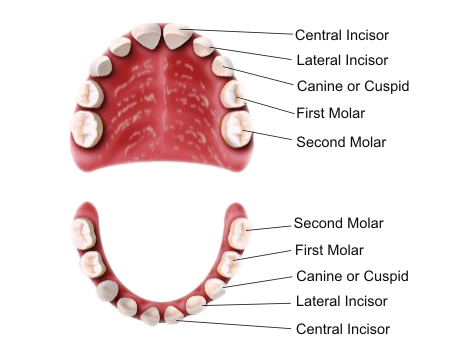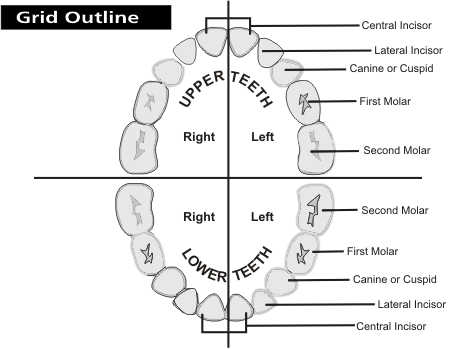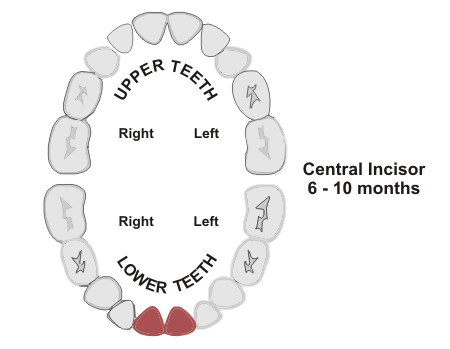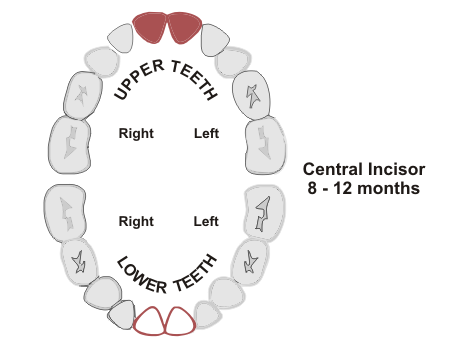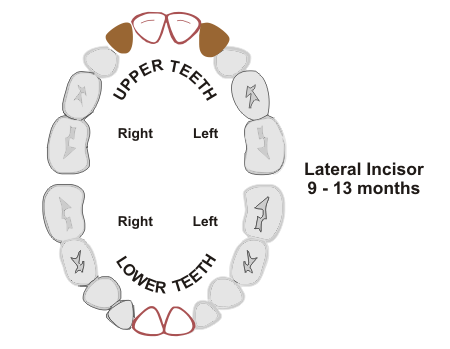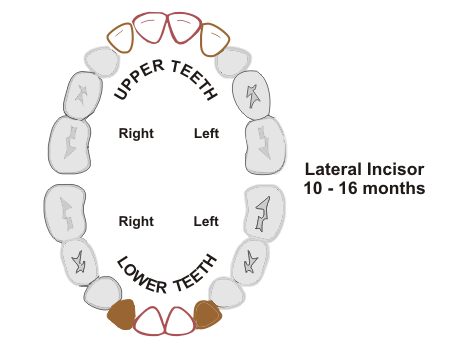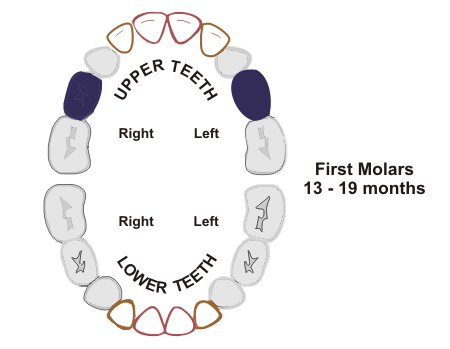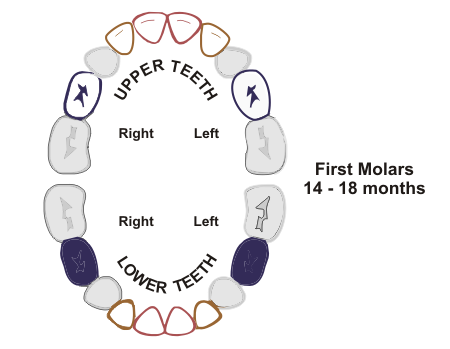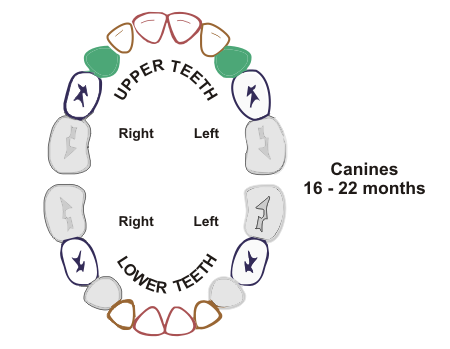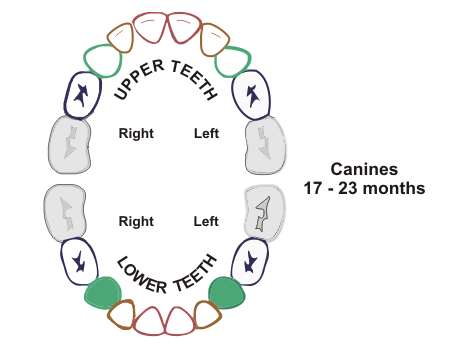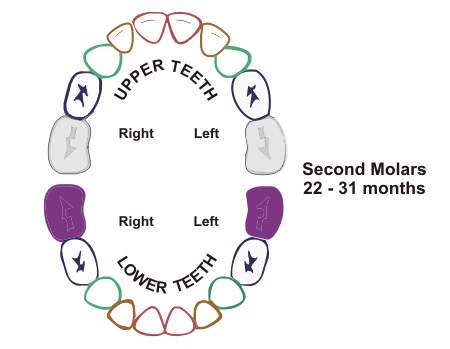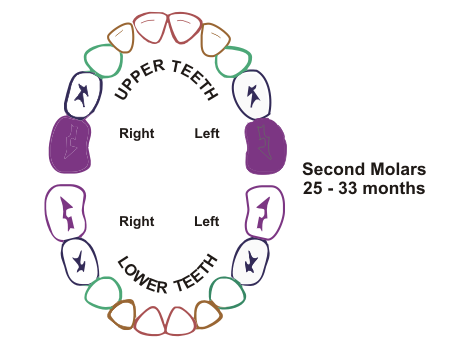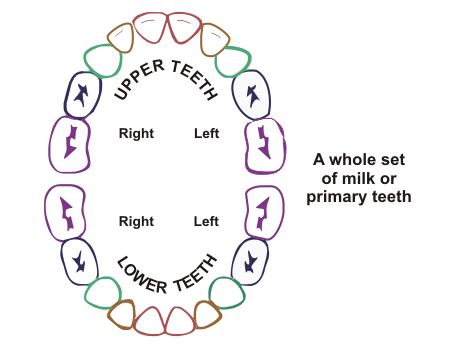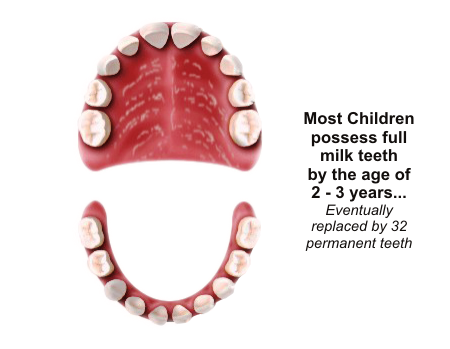Teething - Mother's e-Guide
Main menu:
Neonatal
Baby Teething
When it comes to teething, all babies are different, but most babies start teething at around 6 months.
Teething symptoms
Baby teeth develop sometimes with no pain while some babies do have discomfort. Significantly, some teething signs may include but not limited to:
- The baby's gum turning sore and red where the tooth is coming out from.
- One cheek seems flushed.
- Frequent rubbing of ear (by the baby).
- Baby dribbles more than usual.
- Frequent gnawing and chewing on things.
- Some babies are more fretful than usual while some tend to become dull and inactive.
Interact for visuals via the roman numerals
- -
Bottom front teeth (bottom incisors) – these are usually the first set to
appear, usually at around 6 - 10 months.
- -
Top Central incisors (Upper front teeth) – develop at around 8 - 12 months.
- -
Top lateral incisors (either side of the top front teeth) – appear at around 9
-13 months
- -
Bottom lateral incisors (either side of the bottom front teeth) – develop
within 10 - 16 months.
- -
Back upper teeth, in 13 - 19 months, the first Molars show up.
- -
Lower first Molars show up in 14 - 18 months
- -
Canines also known as Cuspid, upper teeth (towards the back of the mouth) –
come through at around 16 - 22 months
- -
Lower teeth canines emerge at 17 -23 months
- -
Second Molars (Lower back teeth) – develop around 23 - 31 months
- - Second Molars (Upper back teeth) – develop
around 25 - 33 months
Most
children will have all of their milk/ primary teeth by the time they are two to
three years old. Between the ages of 6 and 12 i.e. about 6 years interval, a mixture of
both primary teeth and permanent teeth will be in the mouth of a child such as
primary molars replaced by permanent premolars which settles behind the primary
teeth. This period is known as “mixed dentition’’. Eventually, the primary
teeth are replaced by 32 permanent teeth.
Teeth eruption in
babies is known as teething and to comfort a teething baby should not be
difficult. This can be achieved by making use of non-medical options such as
giving the baby healthy things to chew: small bits of fruit, teething rings
etc. This will ease him/ her of discomfort and same time distracts the child from
any pain. Also, paracetamol or ibuprofen could be given to relieve teething
pains or discomfort in babies and children of 3 months and above. Drugs
should be taken as prescribed by the medical experts.
Home Page | Antenatal | Postnatal | Neonatal | Healthy Tips | FAQ | Trainers Pack | Extras | General Site Map

